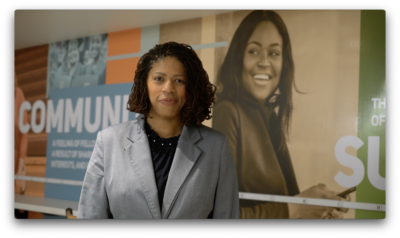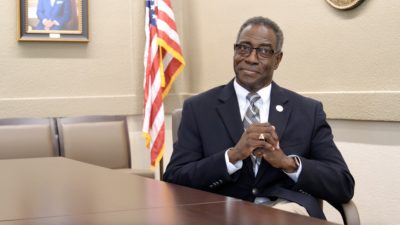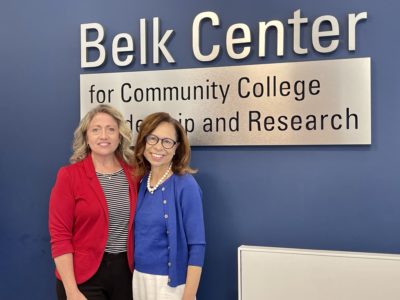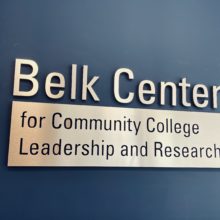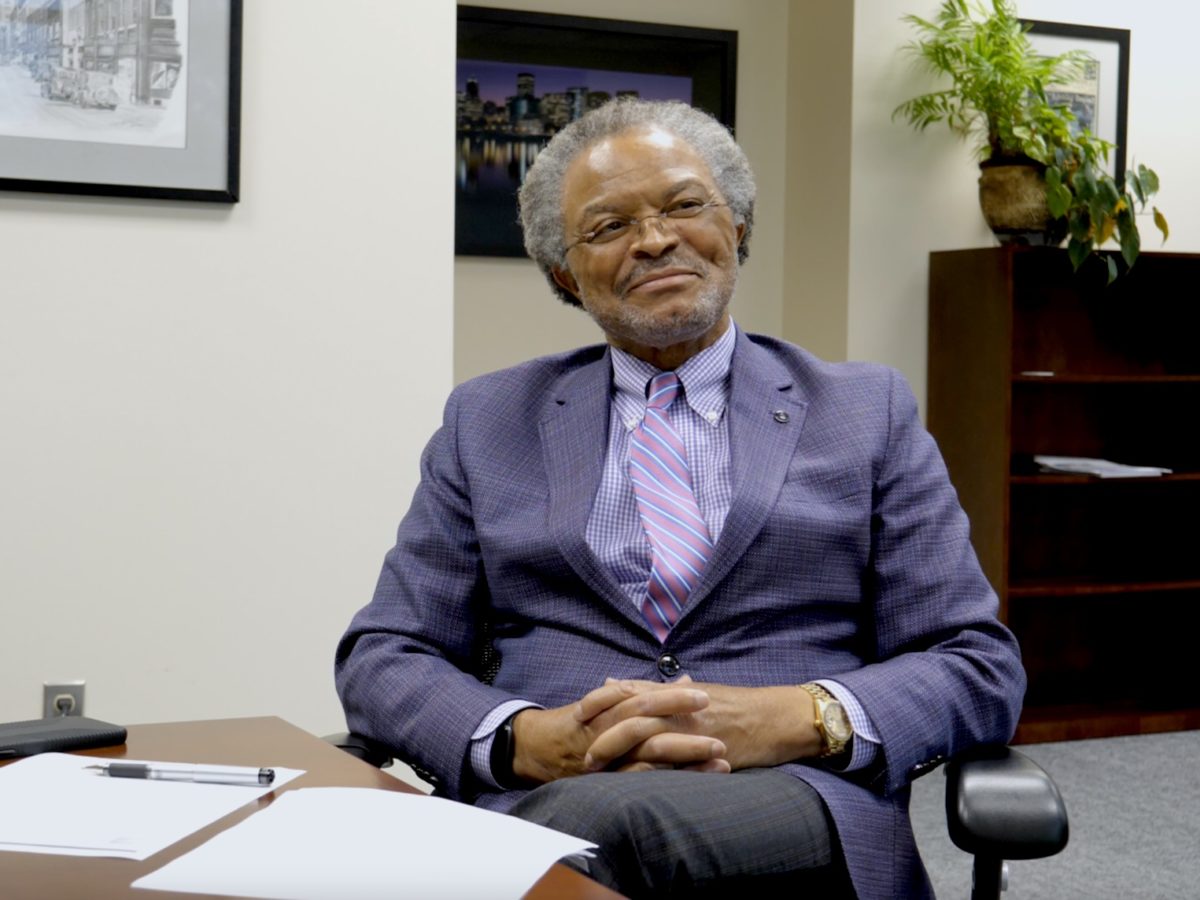
|
|
This profile of Dr. Algie Gatewood is a part of the Belk Center for Community College Leadership & Research’s NCCCS History Project Trailblazer profiles. The purpose of the NCCCS Trailblazer Profiles is to highlight and celebrate the work of Asian, Black, Indigenous, and Latin leaders in the North Carolina Community College System, specifically focusing on current and former community college presidents. This profile is written in conjunction with the collection of an oral history interview with Dr. Gatewood that will soon be available in the Southern Oral History Project Archives. The interviews were conducted by members of the Belk Center for Community College Leadership staff in spring, summer, and fall 2021. Individuals who have contributed to the profiles include Kenzie Bell, Audrey Jaeger, Erin O’Quinn, Dre’Sha Singleton, and the individual presidents featured. Through these interviews, the Belk Center team hopes to re-center the conversations around who we recognize as important in the history of community college leadership in North Carolina, celebrate the work of our presidents of color, and inspire support for diversifying the presidential leadership pipeline.
There is a sign on Alamance Community College President Dr. Algie Gatewood’s office wall that reads, “Why did the Jefferson students cross the road? Because a brighter future was on the other side, thanks to Dr. Gatewood.” The sign, given to Gatewood when he left his role as the president of the Cascade Campus of Portland Community College in 2013, is a reference to the middle college program he was instrumental in creating in partnership with Jefferson High School, whose campus is just across the street from the college.
Gatewood spearheaded the creation of a middle college program that gave Jefferson High School students the opportunity to take courses at Portland Community College, as well as receive generous scholarships to four-year colleges in Oregon. At the time the middle college program began, Jefferson High School, the only majority African American school in the state of Oregon, had a four-year graduation rate of less than 60%. A decade later, the graduation rate is 80% — higher than both the district and state average.
While impressive on its own, Gatewood’s success at Portland Community College is just one part of his long and impactful career advocating for students in community colleges and beyond. The first African American president of Alamance Community College, Gatewood has supported community college students for more than 45 years.
While he began his career in the field of insurance, over the years he served as an administrator at Anson Community College (1974-1997), as president of the Cascade Campus of Portland Community College (2004-2013) and as president of Alamance Community College (2013-present). He also worked as the director of health, education, and welfare at the North Carolina State Education Assistance Authority (1997-2004). Gatewood received his doctorate in adult and community college education from NC State University, a bachelor’s degree from Livingstone College, and a master’s degree in higher education/college administration from Appalachian State University.
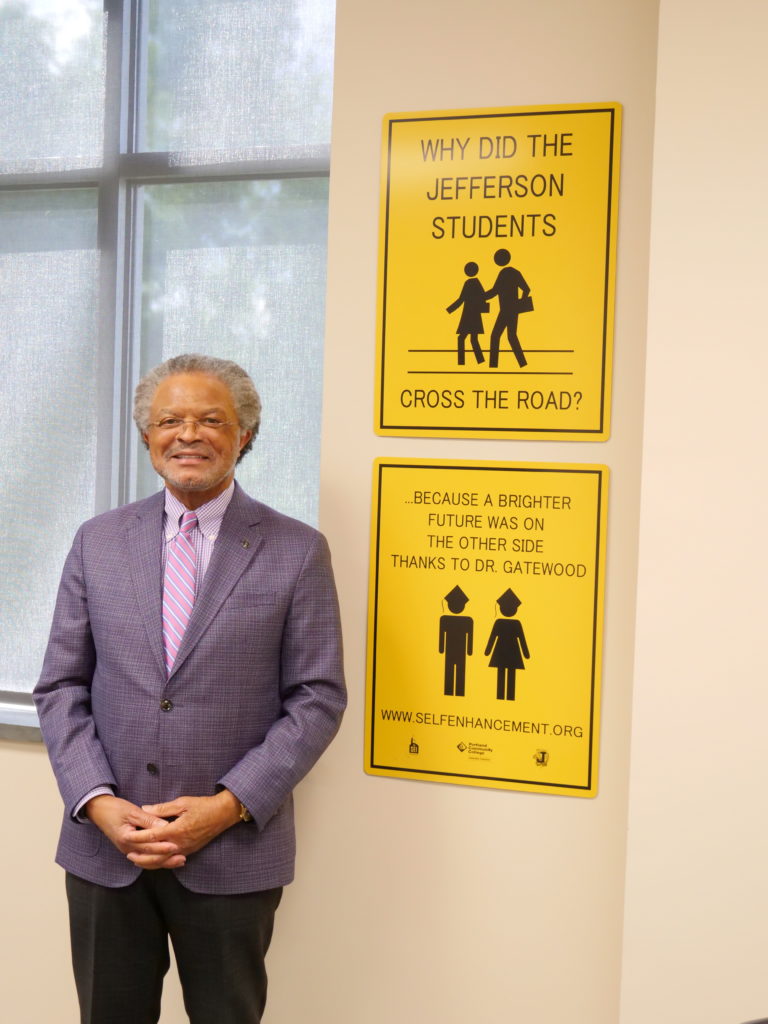
Gatewood knows that many people would not expect Alamance County, a conservative county with a 74% white and 63% white non-Hispanic/Latino population, to have an African American community college president. He attributes his success, however, to his focus on relationship building and listening to community needs, as well as his patience in creating lasting change.
While Gatewood has been very successful at Alamance Community College, the transition was not without its challenges.
“I’ve had to prove myself as being a worthy player. I cannot afford to, and have not, gone into any meetings here and not been prepared… I am always prepared.”
– Gatewood
He believes his race has had a large impact on the shape of his career, and that he has responsibilities not just as a community college president, but as an African American community college president.
“One of the challenges of being an African American is that you cannot be static. The status quo is just not an option. You can’t rest. And even at this late age, I find myself working day and night to keep moving this college forward. Am I an overachiever? Probably not, but it looks that way sometimes. I think that is what we have to do. We have to overachieve. We have to be better or the very best that we can be. I can’t have a slack day. All the way down to my dress.”
– Gatewood
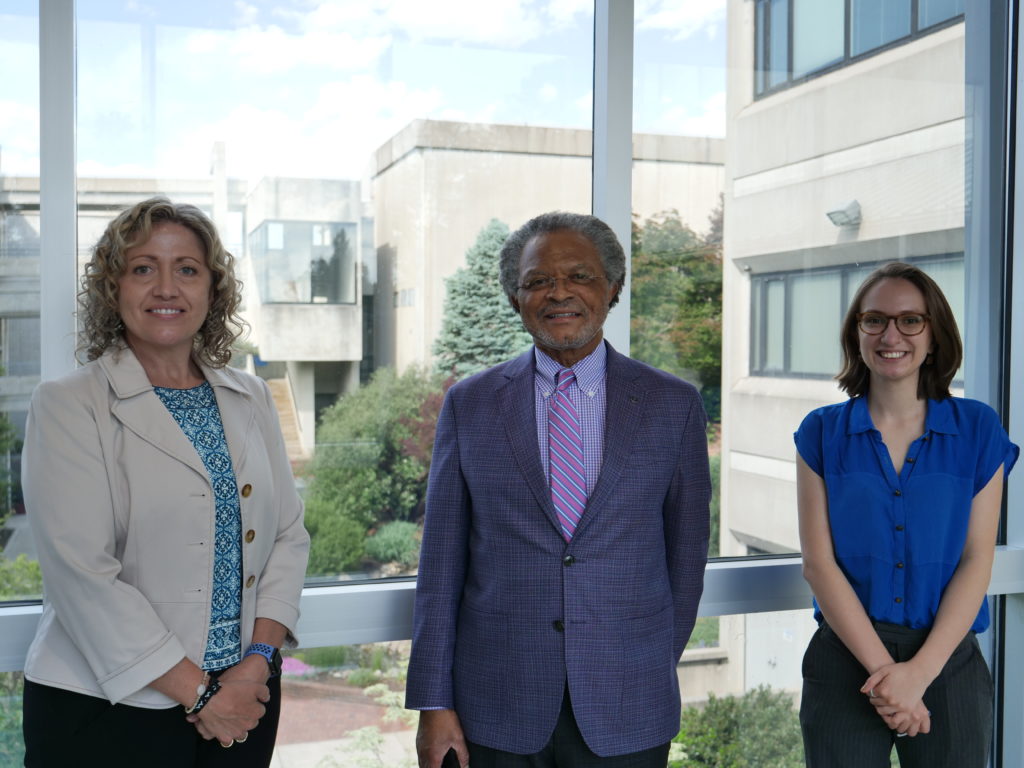
Gatewood’s preparation and commitment to embedding himself in the community has resulted in incredible gains for the college. In the 15 years prior to his arrival, the college had not added a single new program. In his first six years at Alamance, Gatewood has overseen the addition of 12 new programs, including mechatronics, histotechnology, mechanical engineering, agricultural biotechnology and healthcare management technology.
Since 2019, the school has received $15.4 million in grant funding, and during his tenure at Alamance, Gatewood has overseen nearly $80 million in capital improvements, including $60 million in local bond-related funding for the school. In 2020, Alamance Community College was recognized among the top 150 community colleges nationwide by the Aspen Institute College Excellence Program.
This year, the college is breaking ground on three construction projects, including a new space for the Alamance Early College program, a new student services building, and a biotechnology center. The college is also in the process of building a new Public Safety Training Center and creating two new satellite learning centers in the eastern and western parts of the county. Other recent projects include expanding the culinary arts department and the campus food services program and upgrading the childcare center.
In addition to development, Gatewood is also explicitly focusing on racial equity work at the college. Under his leadership, Alamance Community College has hired its first director of diversity and inclusion (June 2021). He also launched the Medical Bridge: Minority Males in Medicine program to support middle and high school boys from historically and systematically marginalized communities in Alamance county who are interested in pursuing medical careers.
Medical Bridge, which is funded by The Burroughs Wellcome Fund, is a partnership with Alamance-Burlington School System and UNC-Chapel Hill Medical School. The program includes a three-week summer camp consisting of hands-on science activities, writing, mentoring, and field trips to regional medical centers, universities, and laboratories, as well as year-round professional and science enrichment workshops. During the COVID-19 pandemic, these events have continued in a virtual format.
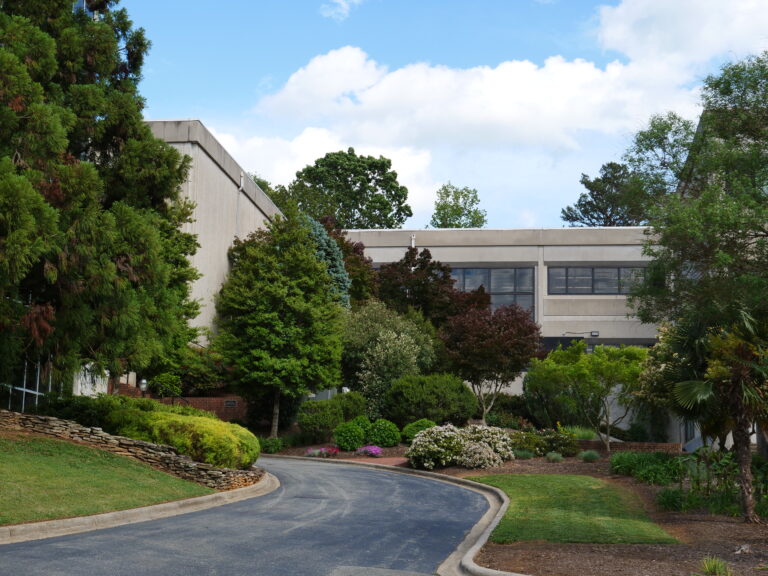
Gatewood also helped to develop the Alamance Scholars program, which creates a pathway from high school to a bachelor’s degree in education for students with financial need. The goal of the program is to address the teacher shortage in the Alamance-Burlington School System, as well as to enhance the racial and ethnic diversity of the teacher workforce. The program is a partnership between Alamance Community College, Elon University, and the Alamance-Burlington School System. After students graduate from Alamance Community College, they receive lowered tuition rates at Elon and are guaranteed jobs in the school district upon their graduation.
Nationwide, the majority of community college students work part or full time while they are students. This is an experience Gatewood can relate to. He entered the workforce at age six (picking cotton), and as an adult, worked full time while earning each of his degrees, at times juggling multiple jobs.
Gatewood, who was raised in Anson County, describes his experiences picking cotton as being on par with legalized slavery:
“The bus would come to our neighborhood and pick up the cotton hands. That is how they referred to us, we were not people, we were hands. We would get on this bus before daylight and go to whichever cotton field our farm manager needed picked on that day, and we would work from sun up until sun down.”
– Gatewood
Cotton hands were paid around three dollars for every 100 pounds of cotton they picked. They could purchase soft drinks and snacks on the bus to work, and whatever they ate was taken out of their pay. Gatewood told a story of how one day as a child he picked 100 pounds of cotton, and at the end of the day, when it came time to be paid he ended up owing the farm manager a dime for the food he ate. “I worked all day, and at the end of the day I owed him a dime.” From this experience, says Gatewood, “I learned how people take advantage of other people.”
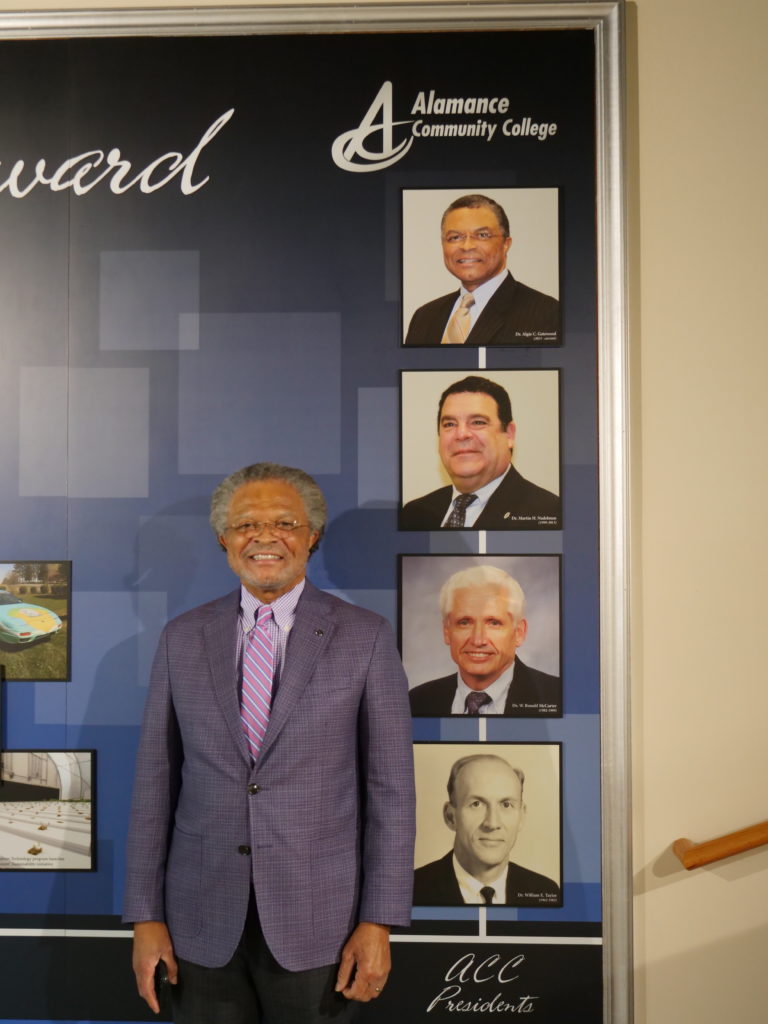
As a child, he never expected to be a college president, let alone attend college at all. When describing his career aspirations to his high school guidance counselor, his goal was to work first shift at the cotton mill. He was encouraged by the counselor to attend Livingstone College, where he graduated with a bachelor’s degree in social sciences and history. He began his career in insurance sales, but after a call from a mentor about a job at Anson Community College, he entered community college administration. The rest, as they say, is history.
Throughout Gatewood’s career, a common thread is the importance of creating pathways to and through higher education for marginalized students. From the Jefferson Middle College, to the Medical Bridge and Alamance Scholars programs, Gatewood has focused on creating programs that support students from high school through a four-year degree. This work shows how he understands community college as being just one step of students’ winding academic journeys, a perspective that is likely shaped by his experience of attending college based on the recommendation of a mentor, and working full time throughout his own higher education journey.
When imagining the world he wishes for his students, Gatewood says, “In the utopia I see in my head, when students get to Alamance Community College, students of all races will be pursuing programs where there will be rewarding careers.”
“If you look at the data, you will learn that too many underrepresented students are in career tracks that will not have rewarding successful careers in terms of the financial part… It’s about economics too, and economic development, and building a more sustainable economy and helping families have the resources they need to go beyond just sustaining themselves.”
Dr. Algie Gatewood, president of Alamance Community College
You can find more about the profiles and project on the Belk Center’s NCCCS History Project Trailblazer Profiles site. Stay tuned to EdNC.org as we republish the Trailblazer Profiles as they are released.
Recommended reading
